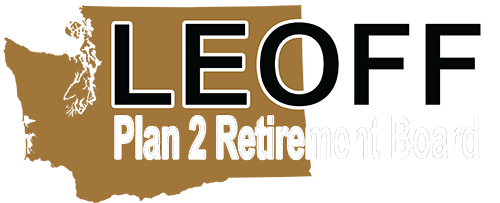Issues Impacting LEOFF Plan 2:
Contribution Rates (Section 711)
The 2017-2019 House budget includes the full required contribution to the plan as adopted by the Board. The current adopted contribution rates, effective July 1, 2017 are: 8.75% Member, 5.25% Employer, 3.50% State
Benefit Improvement Account (BIA) (Section 957):
LEOFF Plan 2 historically had two sources of revenue to fund plan benefits; contributions and investment earnings. Any benefit improvement requires an increase in contributions.
The Legislature passed a bill in 2008 to provide additional revenue, paid out of the state general fund. The new revenue is intended to fund LEOFF 2 benefit improvements when the State economy grows by more than 5% from one fiscal biennium to the next.
The growth trigger was met for the first time in 2013. However the Legislature amended the statute in the 2013-15 operating budget to eliminate the $5 million payment due to the BIA. When the 5% trigger was met again in 2015, a $10 million dollar payment became due into the BIA. Instead of paying the owed amount out of the general fund, the legislature opted to allow a one-time transfer of the unsettled balance of $15 million, plus interest, into the BIA from the LEOFF Plan 2 Trust.
The 5% trigger was met again in 2017, creating a $25 million payment coming due into the BIA. This payment was not included in the House budget. It is also the intent of the legislature to find alternate means to fund future payments into the BIA.
Reimbursement for Special Events Contributions (Section 956):
Employers commonly provide emergency services or security at venues, sporting events, etc. LEOFF 2 members who work these duties receive compensation that is included in the member’s basic salary. This compensation is pensionable and therefore requires retirement contributions be paid by all parties (member, employer and state). During fiscal years 2018 and 2019, when an employer charges a fee or recovers costs for this type of work, the employer must cover both the employer and the state contributions.
